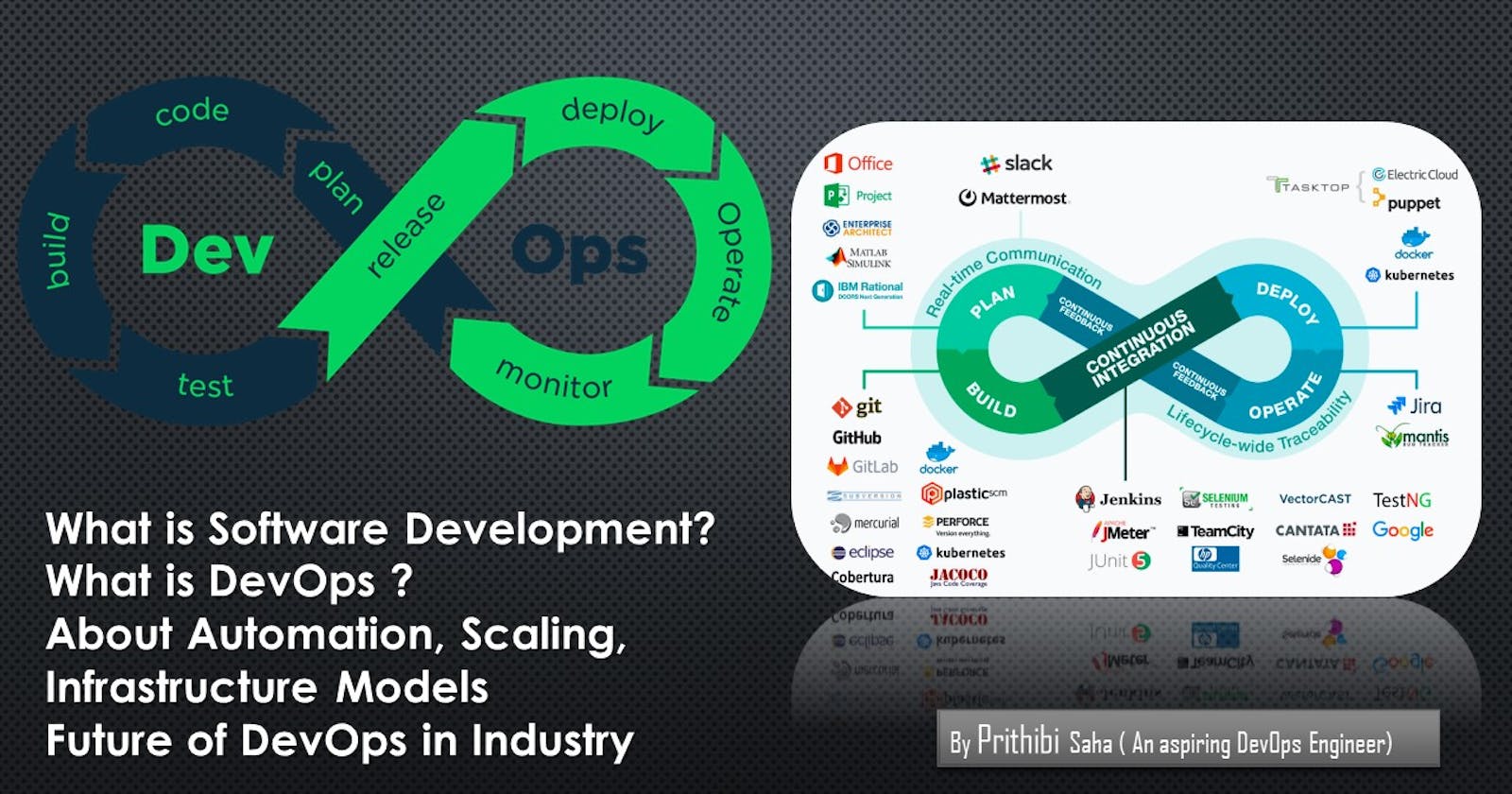Before getting started first we need to understand the basic terminologies of the software development life cycle in Organizations.
Software Development
First, understand the term "Software" :
"Software is a set of instructions, data or programs used to operate computers and execute specific tasks for problem-solving."
Software development is the process of planning, analyzing, designing, creating, programming, implementing, testing, and maintaining software applications. It involves a series of steps that start with gathering user requirements, followed by designing the system architecture, coding, testing, and deploying.
The process of SDLC involves different stages -
Requirement Gathering or Project planning
Identification of Project
Analysis
Designing
Implementation
Testing
Deployment
Maintainance
Monitoring
Software development nowadays can be done by individuals, teams, or organizations. It can be done using a wide range of programming languages, frameworks, and tools. The development process can also vary depending on the software development methodology being used, such as Agile, Waterfall, or DevOps.
What is DevOps?
In every SDLC there is a combination of two words, one is Software Development, and the second is Operations or maintenance. This allows a team to handle the entire system lifecycle, from development to testing, deployment, and operations. Here the joining of the two words becomes "DevOps" which helps you to reduce the disconnection between software developers, quality assurance (QA) engineers, and system administrators.
Before, 2009 DevOps was introduced there was a monolithic process of every SDLC method some of them would be introduced as prototype, waterfall & agile. Since DevOps set foot into the organization we can also say it's an improvement of Agile methodology to solve the dependencies that come over during the software development cycle.
In short, "DevOps is nothing but a simple methodology or practices which {Dev+Ops} adopted nowadays in every software development cycle or maintaining the applications to deliver better optimization to end-to-end user experiences.
Automation
The term "automation" gives the basic meaning i.e., work that is done automatically without any human interruption. In DevOps, automation refers to the use of tools and technologies to automate various aspects of the software delivery process. This includes automating the build, test, and deployment processes, as well as automating infrastructure provisioning and management.
Scaling
Scaling means the process of increasing the capacity and capability of a system, organization, or process to handle increased demand or workload. It can be achieved in various ways, such as adding more resources, optimizing existing resources, or redesigning systems and processes. In software development, scaling is used to analyze the ability of an application or system how to handle an increase in traffic or load without experiencing performance issues or downtime.
Infrastructure
Infrastructure defines the formation of an organization with facilities to operate the whole working system without any exceptions. While if we talk about infrastructure in DevOps then the term would be quite different i.e., It refers to the hardware and software components that support the development, testing, and deployment of software applications. This includes servers, storage devices, networking equipment, VMs, containers, and components. Infrastructure in DevOps is also designed to be scalable and resilient so that it can handle the increased workload and minimize downtime.
Will DevOps peak up in future..!
Let's understand why it is so,
Due to the adoption of DevOps methodology by various organizations in today's development lifecycle seems like infrastructure building up and scalability of proper application experiences gives positive feedback to not only the organizations but also users' experiences. Major features of adopting the DevOps are cost management, resource gathering using Cloud infrastructure services, Workload balancing, Fewer dependencies, more security and many more.
Overall, the future of DevOps is one of continued growth and evolution just like developers' demand would never get down hence DevOps also cz it's now a part of SDLC, with new technologies and practices driving innovation and improving software development and delivery.
Thankyou for reading this blog till last...!
Will be back soon with some new tech blogs :)

